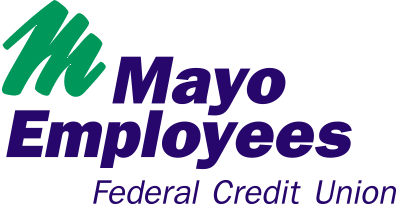Mortgage Glossary
Equity
Your home equity is the value of your home (as appraised, or by the county tax value) minus the loan balance you have on your home.
A portion of the purchase price that is paid at the time of a purchase. Frequently, it is a percentage of the purchase price.
Prequalification
A process by which a consumer can learn how much of a payment is technically affordable without collecting the full documentation needed for the loan approval.
Preapproval
When a borrower completes an application, credit check, and provides supporting documentation; the lender commits to financing up to a specific dollar amount for the purchase of a property.
Lender
An individual from a credit union or bank who will help you determine what loan best fits your needs.
Loan Estimate
A document provided by the lender which outlines preliminary loan details such as: rate, term, down payment, and closing costs.
Realtor
An individual who helps the consumer find the right home, negotiate a purchase price, and often provides referrals and support throughout the home buying process.
Earnest Money
An amount of money provided with the purchase agreement that is applied to the down payment and/or closing costs.
The contract made between buyer and seller to purchase a property.
Prepaid Items
Various items that are often considered part of the closing costs. These can include items paid for prior to the purchase such as homeowner’s insurance premium, odd days of interest/finance charges, and property taxes.
Home Inspector
An individual who thoroughly inspects the home identifying issues and opportunities for home maintenance.
Home Inspection
An inspection is the process where a professional inspector critically examines the property to identify home maintenance and any potential issues. These are completed as a part of the due diligence of purchasing a home.
A process by which all entities involved in the transfer of property sign the necessary documents, money is transferred from buyer to seller, and the title is transferred from seller to buyer. This process is typically facilitated by the Closing Office, Title Company, Escrow, or Real Estate Attorney.
Closing Office, Title Company, Escrow, Real Estate Attorney
An entity which acts as a neutral third party; they will facilitate the payment from buyer to seller and as well as the transfer of title to the property.
Costs associated with setting up the loan including fees paid to the Lender, Closing Office, Title Company, Escrow, Real Estate Attorney, and other third parties associated with the loan and home buying process.
Closing Disclosure
Document provided by the lender outlining the final loan details and costs.
Loan Servicing Company
An entity which manages the loan and escrow account for the borrower and collects the mortgage payment.
Escrow Account
A savings account managed by the Loan Servicing Company where money from the monthly payment is set aside to cover the homeowner’s insurance premium and property taxes.
Homeowners Insurance
Property and casualty insurance, required by lenders, which covers personal liability as well as damage to the physical property resulting from weather, fire, theft, or other covered events.
Private Mortgage Insurance (PMI)
PMI is generally required when the owner has less than 20% equity in their home. Because a down payment equals equity, paying the PMI can be avoided by putting 20% down. Otherwise, PMI is included in the monthly mortgage payment (also known as your PITI, principle, interest, taxes and insurance), then paid by the lender to a private firm to insure they get paid in case the loan is defaulted.
Property Taxes
Taxes that may be assessed by multiple levels of government on a property.
Mortgage Insurance
Insurance protecting the lender which is paid for by the borrower when the down payment is less than 20% unless otherwise specified.
Flood Insurance
Insurance coverage for loss or damage to a property due to a flood is required for borrowers whose property resides in a flood plain.
Refinance
A process where a homeowner replaces their existing mortgage loan with a new mortgage loan. This often results in a reduced interest rate or shortened loan term. Refinancing can also increase the loan amount, providing cash to the homeowner as a part of the transaction.
Break-Even Point
This is the point at which the savings of the new loan has covered the costs of setting up the new loan.
